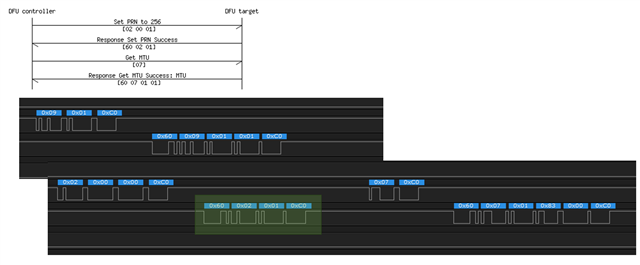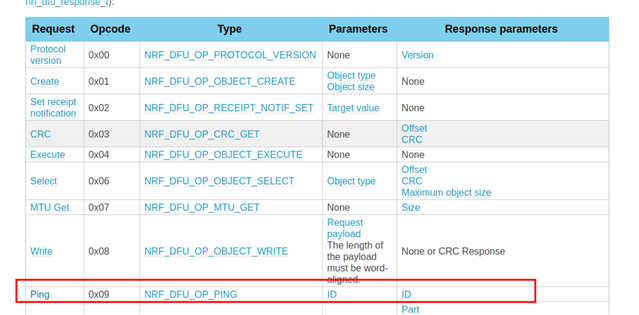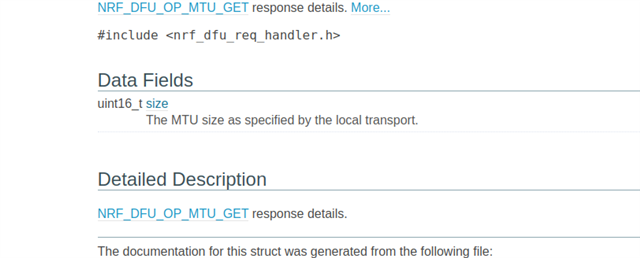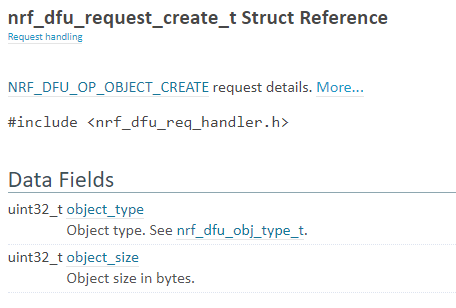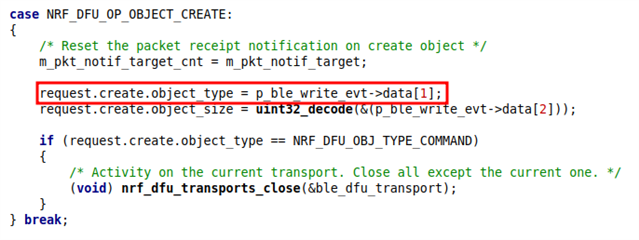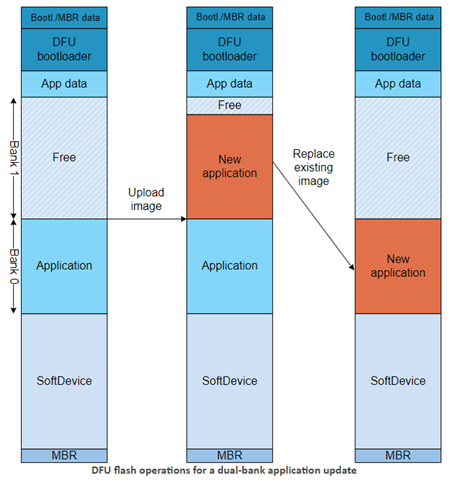Hi,
I'm implementing flashing modul, which will be running on external mcu. Therefore for the very 1st step, I have captured traffic while performing dfu on PCA10040 via nrf util from PC. Now I'm wondering of the meaning of transferred bytes, since it's not matching to decription in sdk.
First captured packet is: 0x09 0x01 0xc0; according to dfu transport shall be 0x02 0x00 0x01..
After response 0x60 0x09 0x01 0x01 0xc0, similar packet is sent 0x02 0x00 0x00 0xc0 and finally get response set prn success 0x60 0x02 0x01
Then Get MTU is following... and then I get a bit different response 0x60, 0x07, 0x01, 0x83, 0x00, 0xc0 --->how many bytes are use to represent MTU?
Now I'm wondering if there is any document/manual with detailed description of transfered bytes (somehow I didn't find it), or is there any existing code/library for performing dfu, that could be used for implementing flashing procedure on external mcu via uart.
Thank you in advance.
Best regards,
Matej
